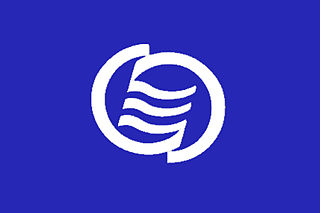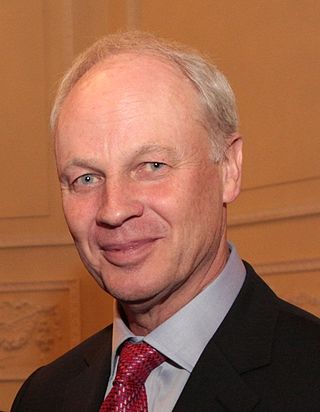
Tourism is travel for pleasure, and the commercial activity of providing and supporting such travel. UN Tourism defines tourism more generally, in terms which go "beyond the common perception of tourism as being limited to holiday activity only", as people "travelling to and staying in places outside their usual environment for not more than one consecutive year for leisure and not less than 24 hours, business and other purposes". Tourism can be domestic or international. International tourism has both incoming and outgoing implications on a country's balance of payments.

The United Nations Economic and Social Council (ECOSOC) is one of six principal organs of the United Nations, responsible for coordinating the economic and social fields of the organization, specifically in regards to the fifteen specialized agencies, the eight functional commissions, and the five regional commissions under its jurisdiction.

The United Nations World Tourism Organization or UN Tourism is a specialized agency of the United Nations which promotes responsible, sustainable and universally-accessible tourism. Its headquarters are in Madrid, Spain. Other offices include: a Regional Support Office for Asia and the Pacific in Nara, Japan and a Regional Office for the Middle East in Riyadh, Saudi Arabia.

Ecotourism is a form of nature-oriented tourism intended to contribute to the conservation of the natural environment, generally defined as being minimally impactful, and including providing both contributions to conservation and environmental education. The definition sometimes also includes being financially beneficial to the host community or making conservation financially possible. There are a range of different definitions, and the correct definition of the term was an active subject of debate as of 2009. The term is also used more widely by many organizations offering nature tourism, which do not focus on being beneficial to the environment.

The Association of Southeast Asian Nations, commonly abbreviated as ASEAN, is a political and economic union of 10 states in Southeast Asia. Together, its member states represent a population of more than 600 million people and land area of over 4.5 million km2 (1.7 million sq mi). The bloc generated a purchasing power parity (PPP) gross domestic product (GDP) of around US$10.2 trillion in 2022, constituting approximately 6.5% of global GDP (PPP). ASEAN member states include some of the fastest growing economies in the world, and the institution plays an integral role in East Asian regionalism.

The World Economic Forum (WEF) is an international advocacy non-governmental organization and think tank, based in Cologny, Canton of Geneva, Switzerland. It was founded on 24 January 1971 by German engineer Klaus Schwab.

The Association of Caribbean States is an advisory association of nations centered on the Caribbean Basin. It was formed with the aim of promoting consultation, cooperation, and concerted action among all the countries of the Caribbean coastal area. The 5 main purposes of the ACS is to promote greater trade between the nations, enhance transportation, develop sustainable tourism, facilitate greater and more effective responses to local natural disasters, and to preserve and conserve the Caribbean Sea.

The G20 or Group of 20 is an intergovernmental forum comprising 19 sovereign countries, the European Union (EU), and the African Union (AU). It works to address major issues related to the global economy, such as international financial stability, climate change mitigation and sustainable development, through annual meetings of Heads of State and Heads of Government.

Sustainable tourism is a concept that covers the complete tourism experience, including concern for economic, social, and environmental issues as well as attention to improving tourists' experiences and addressing the needs of host communities. Sustainable tourism should embrace concerns for environmental protection, social equity, and the quality of life, cultural diversity, and a dynamic, viable economy delivering jobs and prosperity for all. It has its roots in sustainable development and there can be some confusion as to what "sustainable tourism" means. There is now broad consensus that tourism should be sustainable. In fact, all forms of tourism have the potential to be sustainable if planned, developed and managed properly. Tourist development organizations are promoting sustainable tourism practices in order to mitigate negative effects caused by the growing impact of tourism, for example its environmental impacts.
Green conventions or green meetings are conventions which are conducted in ways which minimize the environmental burdens imposed by such activities. Green event planners apply environmentally preferred practices to waste management, resource and energy use, travel and local transportation, facilities selection, siting and construction, food provision and disposal, hotels and accommodations, and management and purchasing decisions. The practice is known as "event greening" or "sustainable event management".

The Pacific Asia Travel Association (PATA) is a membership association working to promote the responsible development of travel and tourism in the Asia Pacific region.

Felix Dodds, born Michael Nicholas Dodds, is a British author, futurist, and activist.
The European Travel Commission (ETC) is an international non-profit association representing the national tourism organizations (NTOs) in Europe and is based in Brussels. It was established in 1948 to promote Europe as a tourist destination to long-haul markets outside of Europe; initially the United States, then Canada, Latin America, and Asia-Pacific later on. The ETC in 2023 had 36 member NTOs and 12 associate members from the private industry. The association aims to raise awareness of the importance of tourism among national European authorities and the general public through sharing best practices and cooperation in market intelligence and promotion.

EarthCheck, previously operating under the name EC3 Global, is a globally recognised group specialising in benchmarking, certification, and advisory services. Its primary focus lies in the environmental and scientific dimensions of the travel and tourism sector. Established over 30 years ago, EarthCheck collaborates with prominent research institutions and universities globally to address sustainability and climate change challenges in tourism destinations and businesses.

The Greek Tourism Confederation, commonly abbreviated to SETE (ΣΕΤΕ), is a non-governmental, non-profit organization founded in 1991. It is the representative confederation for unions of tourism enterprises in Greece, as well as independent companies operating across the broader tourism sector.
Tourism Concern was a British NGO, advocating ethical tourism through campaigning and educating the tourism industry and travelling public. It closed in September 2018. Its members and staff worked to highlight global tourism's negative impacts and potential solutions, believing that host communities should truly benefit, not suffer, from tourism development. Its web and print archives held by Warwick University document the scope of its work over thirty years. Stated aims were 'to increase understanding of the impact of tourism on environments and host communities among governments, industry, civil society and tourists; and to promote tourism development that is sustainable, just and participatory, and which is founded on a respect for human rights.'

The World Resources Forum (WRF) is a non-profit organisation for sharing knowledge about the economic, political, social and environmental implications of global resource use. WRF promotes resource productivity among researchers, policymakers, business, NGOs and the public. In addition to organizing international and regional conferences, the WRF Secretariat coordinates multistakeholder dialogue projects, amongst others the Sustainable Recycling Initiative (SRI) as well as the H2020 projects Towards a World Forum on Raw Materials (FORAM), and CEWASTE. The WRF contributes to other EC-projects and projects with the German development organisation GiZ, UNEP and UNIDO.

Gloria Guevara Manzo is a business executive and stateswoman. She was Secretary of Tourism for Mexico from March 10, 2010 to November 30, 2012.
Tourism has a significant impact on destinations, influencing their economy, culture, environment, and communities. Tourism positively affects many parties in society but can also be detrimental in certain situations.

David P. Scowsill is a British businessman, and serial non-executive director and chairman, known for his contributions to the travel and tourism industries. He is the former president and CEO of the World Travel & Tourism Council.


















